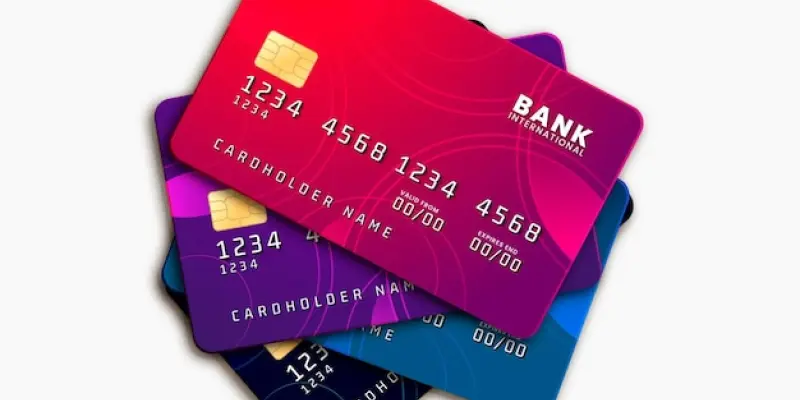Africa is poised for significant growth in its digital payments market, with projections indicating it could reach $1.5 trillion by 2030. This impressive expansion is largely driven by increased internet penetration and a rise in financial inclusion across the continent. Mastercard, with its robust and long-standing presence in Africa, is strategically positioning itself to capitalize on this growth trajectory. Through various targeted initiatives, the company aims to foster and bolster the burgeoning digital economy in the region, aligning with its rapid development and the socio-economic evolution taking place.
Empowering Micro, Small, and Medium Enterprises (MSMEs)
Mastercard’s strategy to empower MSMEs is fundamental to its overall vision for Africa, given that these enterprises contribute more than 50% to the continent’s GDP. Community Pass, one of its flagship initiatives, epitomizes this commitment. The digital platform aims to connect underserved and rural communities to a range of financial services. With an ambitious goal to onboard 15 million users within five years in collaboration with the African Development Bank, Mastercard seeks to integrate these marginalized communities into the broader economic framework, thereby enhancing overall economic participation and financial inclusion.
Further exemplifying Mastercard’s dedication to MSMEs is the innovative solution known as Tap on Phone and SME-in-a-Box. This technology enables small merchants to accept digital payments using mobile devices, effectively circumventing the need for traditional banking infrastructure. This practical and scalable solution not only increases financial inclusion among MSMEs but also empowers them with the necessary tools to conduct business more efficiently and securely. By leveraging mobile technology, Mastercard is facilitating a shift towards a more digital and cashless economy, which is crucial for sustained economic growth in Africa.
Accelerating Fintech Innovation
The fintech sector in Africa has witnessed exponential growth, with approximately half of the current fintech companies having been established within the past six years. Mastercard is playing a pivotal role in fostering innovation within this dynamic sector. By forging strategic partnerships with telecommunications companies and banks, Mastercard is significantly expanding access to digital financial services. Notable collaborations, such as those with Kenya’s M-Pesa and MTN Group Fintech, underscore Mastercard’s commitment to broadening financial accessibility and delivering innovative solutions across the continent.
Additionally, Mastercard’s efforts to integrate digital wallets and e-commerce platforms are making digital commerce seamless and more accessible. The Fintech Express Program further accelerates the fintech ecosystem by simplifying the process for startups to issue payment cards. Leveraging advanced technologies such as identity verification, biometric security, AI-driven fraud protection, and open banking capabilities, Mastercard is equipping fintech startups with the essential tools to thrive. This holistic approach significantly enhances the overall efficiency and security of digital transactions, promoting a more robust and resilient financial environment.
Simplifying Cross-Border Payments
Africa’s substantial remittance inflows, which totaled approximately $100 billion in recent years, highlight the crucial need for efficient and secure cross-border payment solutions. Mastercard has proactively addressed this need through its Cross-Border Services platform, which facilitates seamless and secure international money transfers via various channels, including bank accounts, mobile wallets, cards, and cash pickup. This platform aims to streamline the remittance process, making it more accessible and reliable for both senders and recipients.
Local partnerships with prominent banks such as Access Bank and Equity Bank are integral to Mastercard’s strategy to simplify cross-border transactions. These collaborations play a vital role in enhancing the ease with which African businesses and individuals can engage in global commerce. By simplifying the transfer process and reducing associated costs, these partnerships not only bolster economic growth but also ensure that greater financial resources reach the intended beneficiaries. This enhances the overall financial health and economic stability of the continent, paving the way for sustainable development.
Building a Sustainable Digital Economy
To support Africa’s rapidly evolving economy, the Mastercard report emphasizes the necessity for a robust digital infrastructure. By investing in tools that aid everyday merchants and creating regional payment systems, Mastercard is laying the groundwork for sustainable economic expansion. These investments are designed to address the unique challenges faced by various sectors, ensuring that the benefits of digital transformation are widespread and inclusive.
In addition to technological investments, Mastercard is actively promoting public-private collaborations to build inclusive financial systems. By working closely with governments, regulators, and other stakeholders, Mastercard aims to create an enabling environment for financial inclusion and economic development. These collaborative efforts are essential to ensure that the improvements in digital infrastructure have a lasting and positive impact, reaching all economic segments from rural farmers to urban entrepreneurs. This holistic approach ensures that the digital transformation is equitable, benefiting all layers of society.
Collaborative Efforts for an Inclusive Future
Africa is on the brink of substantial growth in its digital payments market, with forecasts suggesting it might hit a staggering $1.5 trillion by 2030. This remarkable growth can be attributed to increasing internet accessibility and a notable rise in financial inclusion throughout the continent. Mastercard, which has maintained a solid and longstanding footprint in Africa, is strategically aligning itself to leverage this promising growth. By engaging in various specific initiatives, the company seeks to nurture and strengthen the thriving digital economy in the region. Mastercard’s efforts align seamlessly with Africa’s swift developmental pace and the ongoing socio-economic transformations. Their aim is to support the continent’s transition into a digitally empowered future, where financial inclusivity can promote broader economic opportunities and improve quality of life. As Africa continues on this promising path, Mastercard’s role could prove pivotal in bridging gaps and fostering innovation within this burgeoning market.

